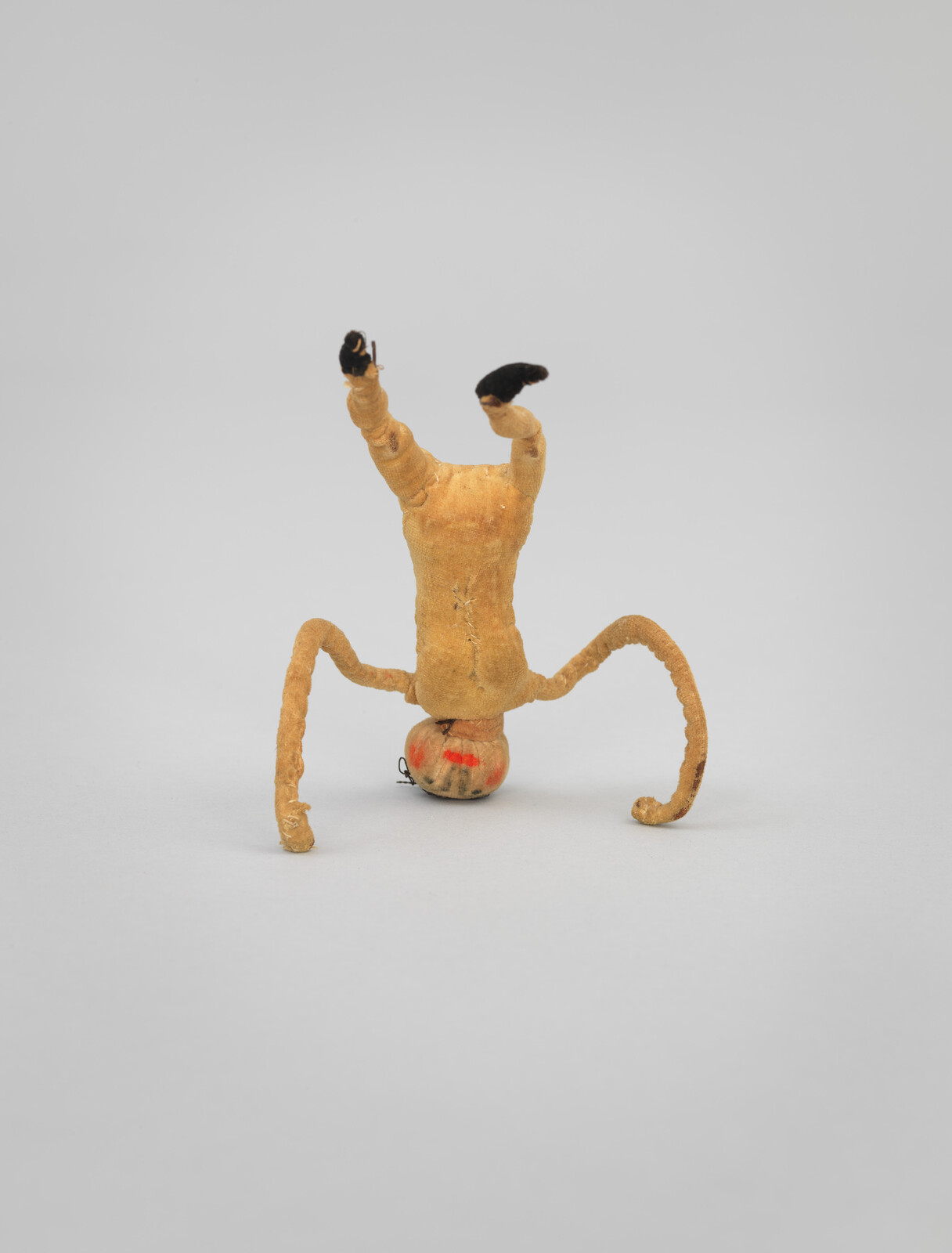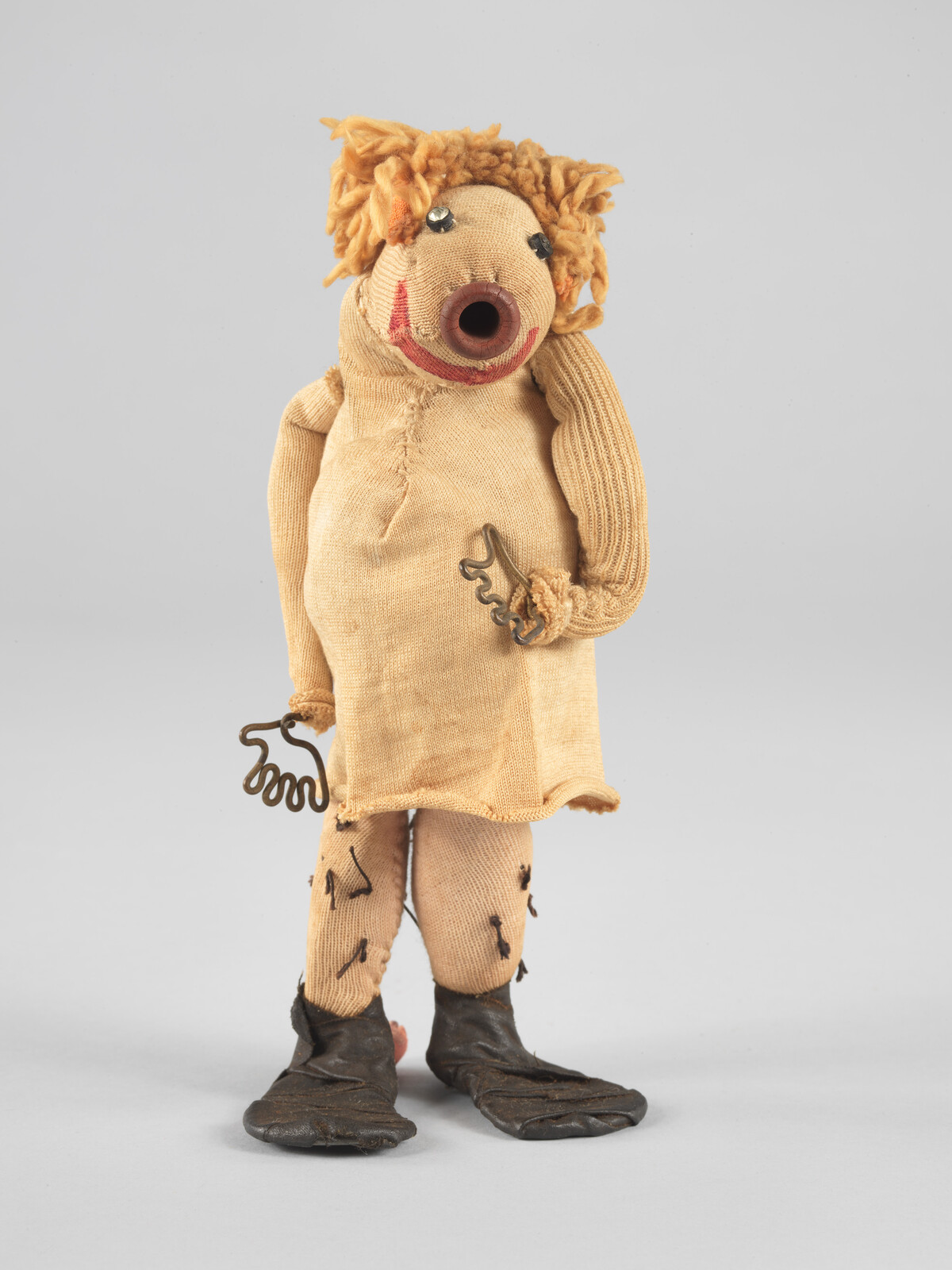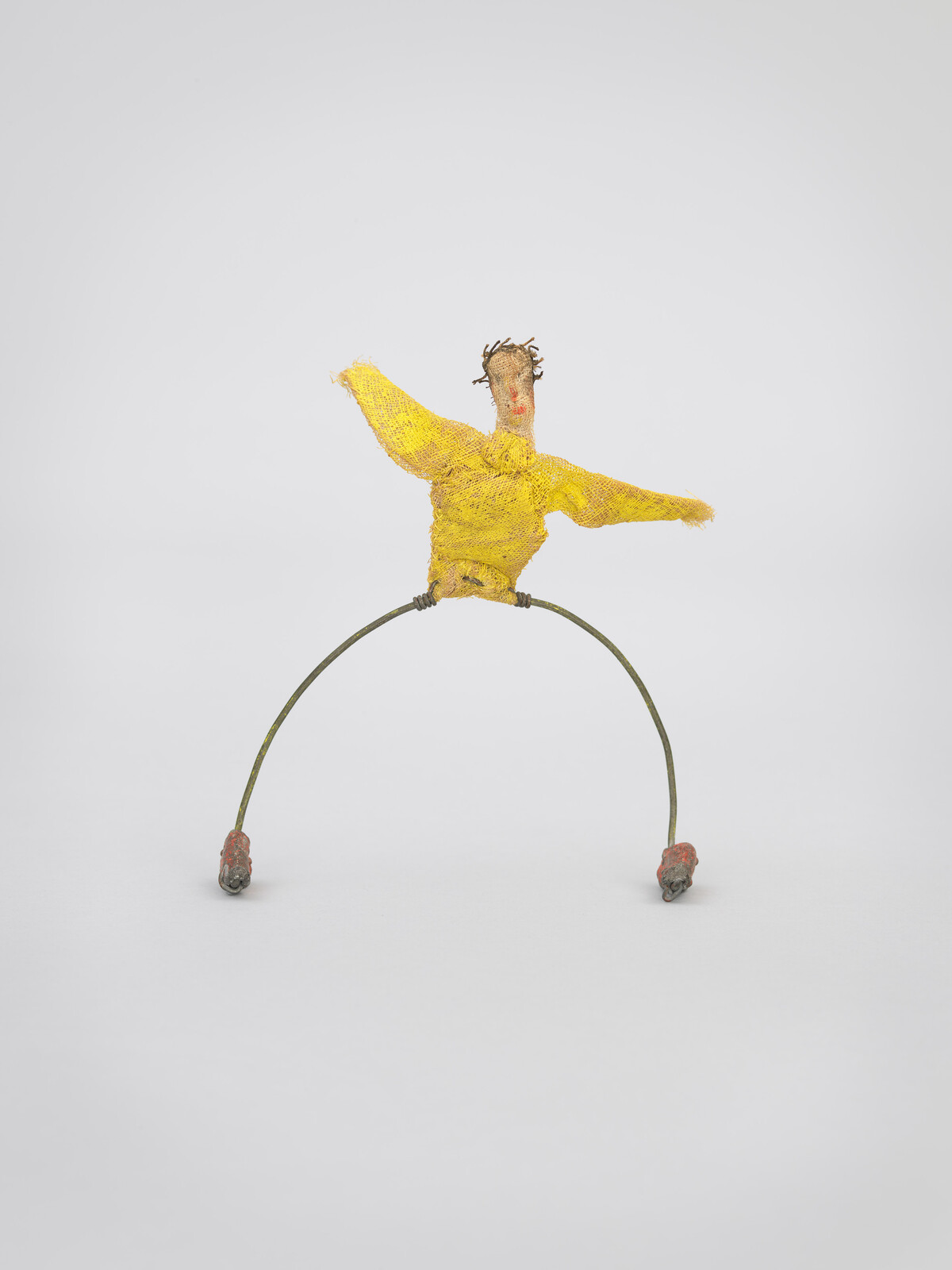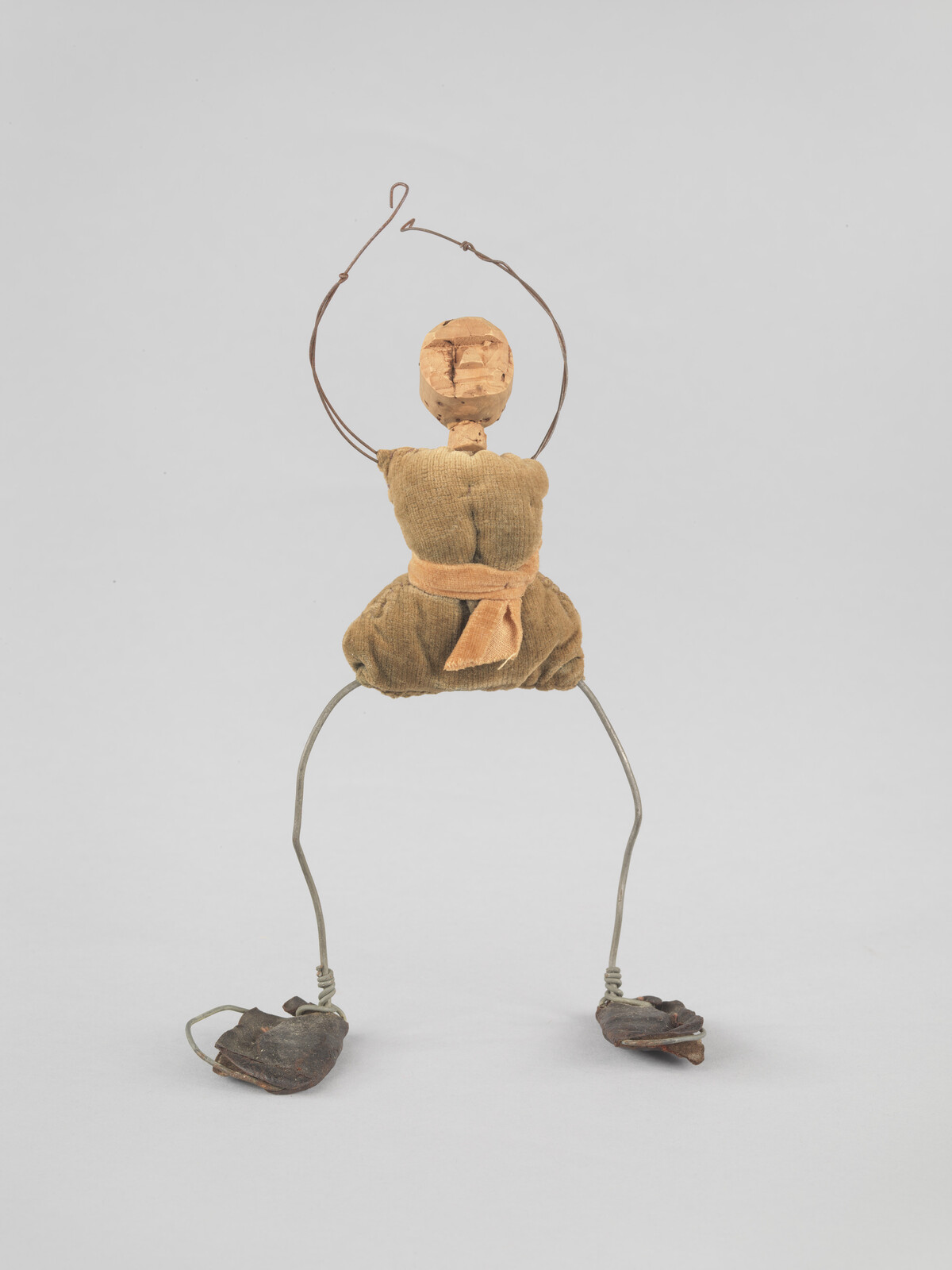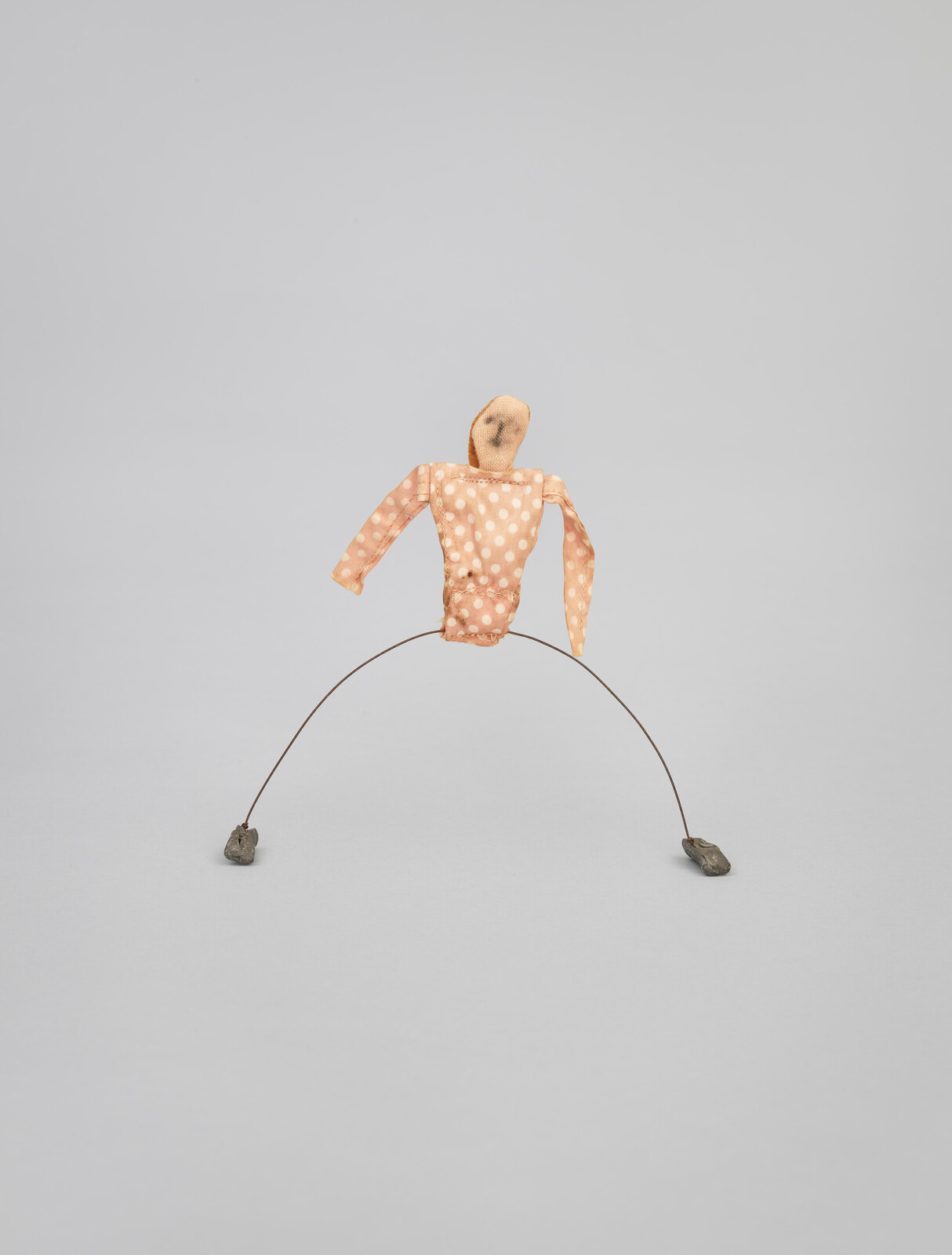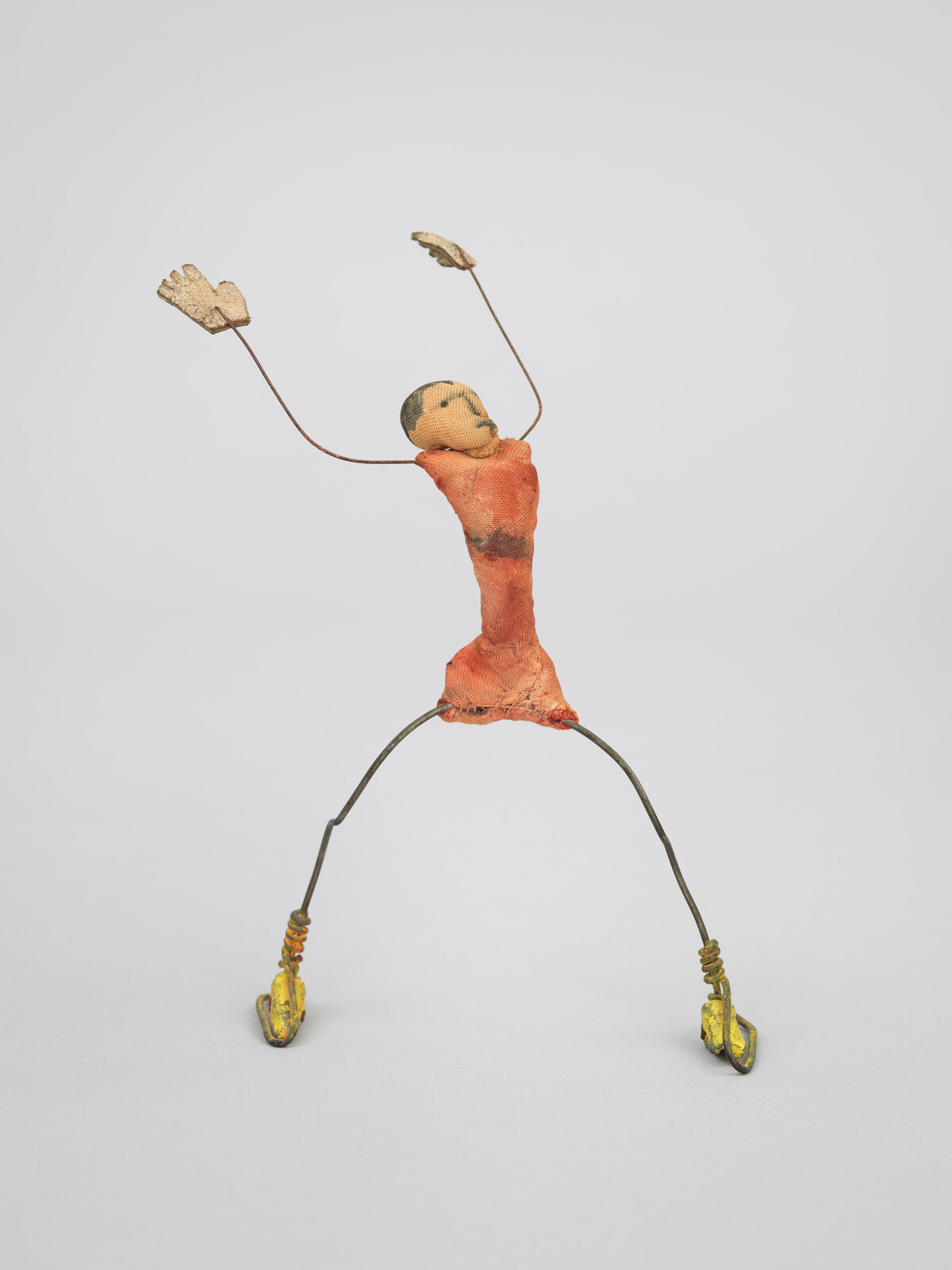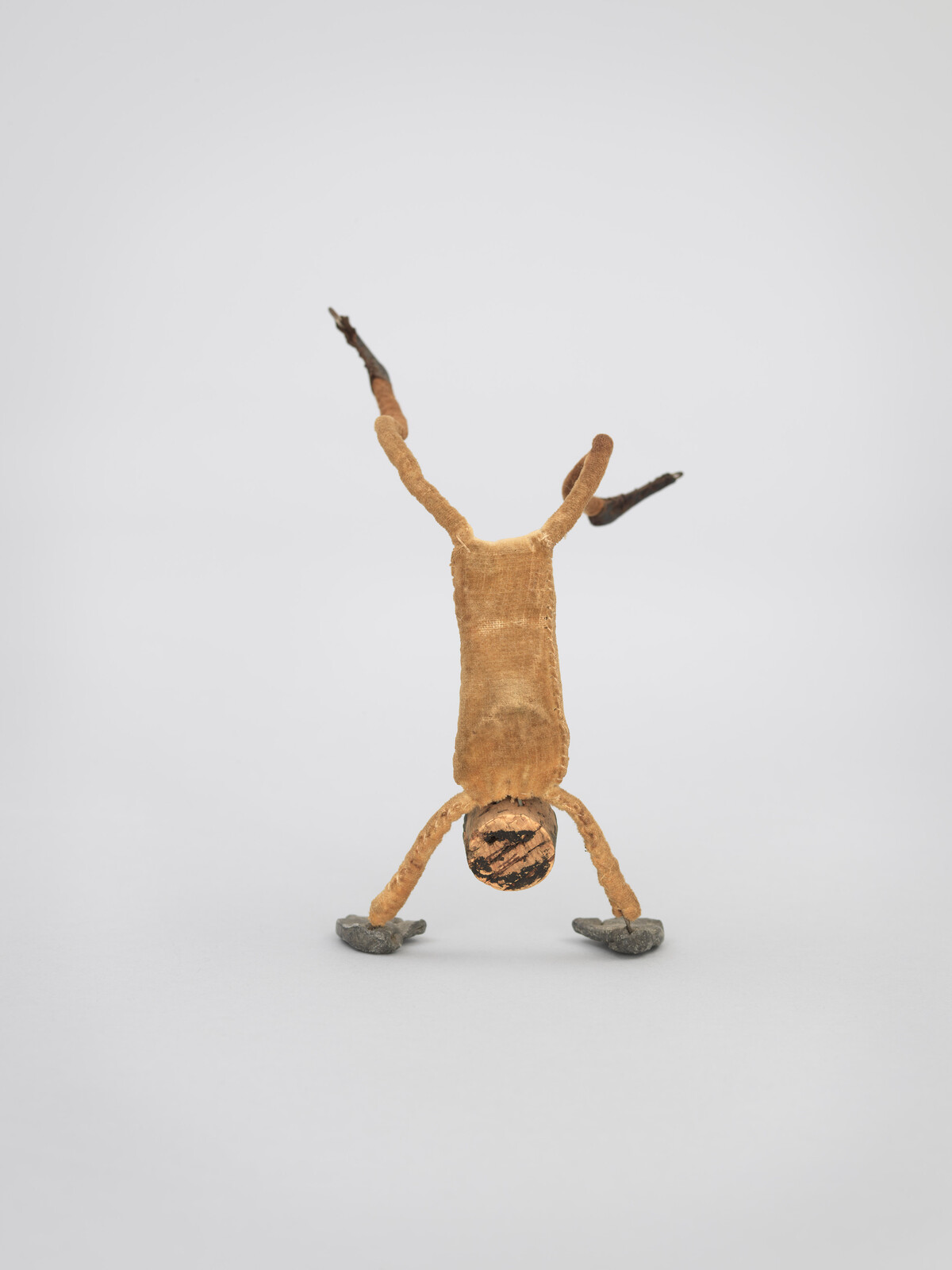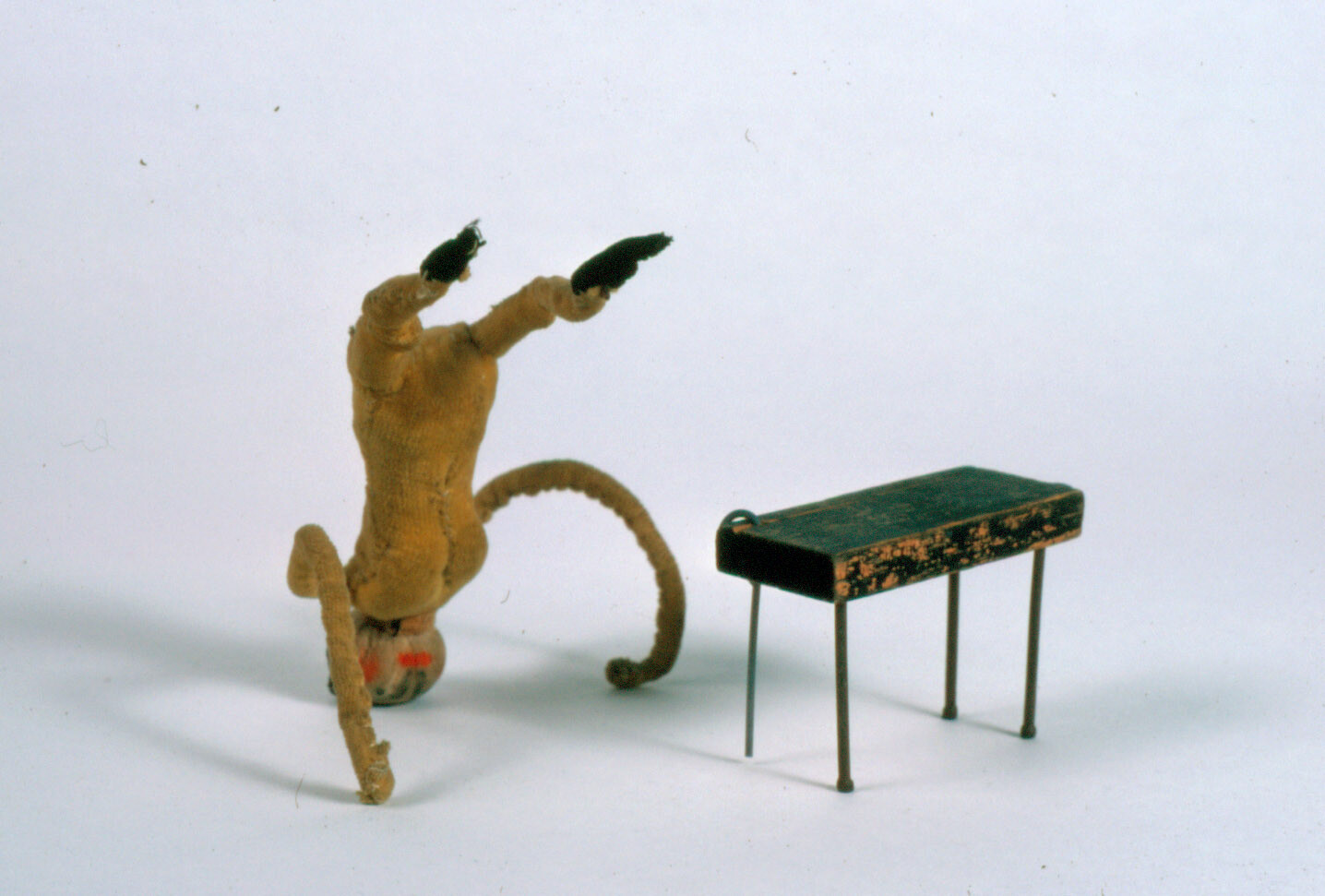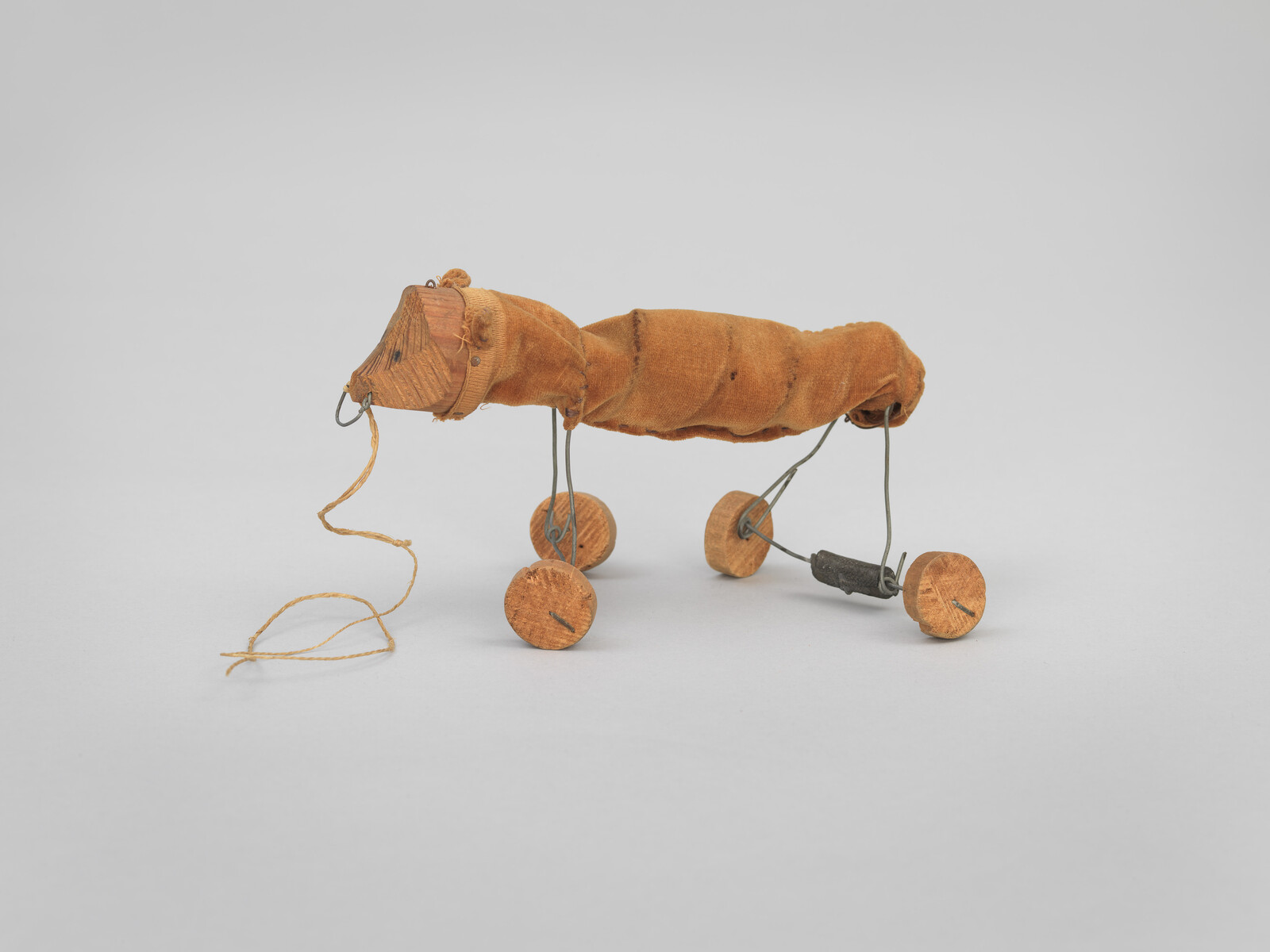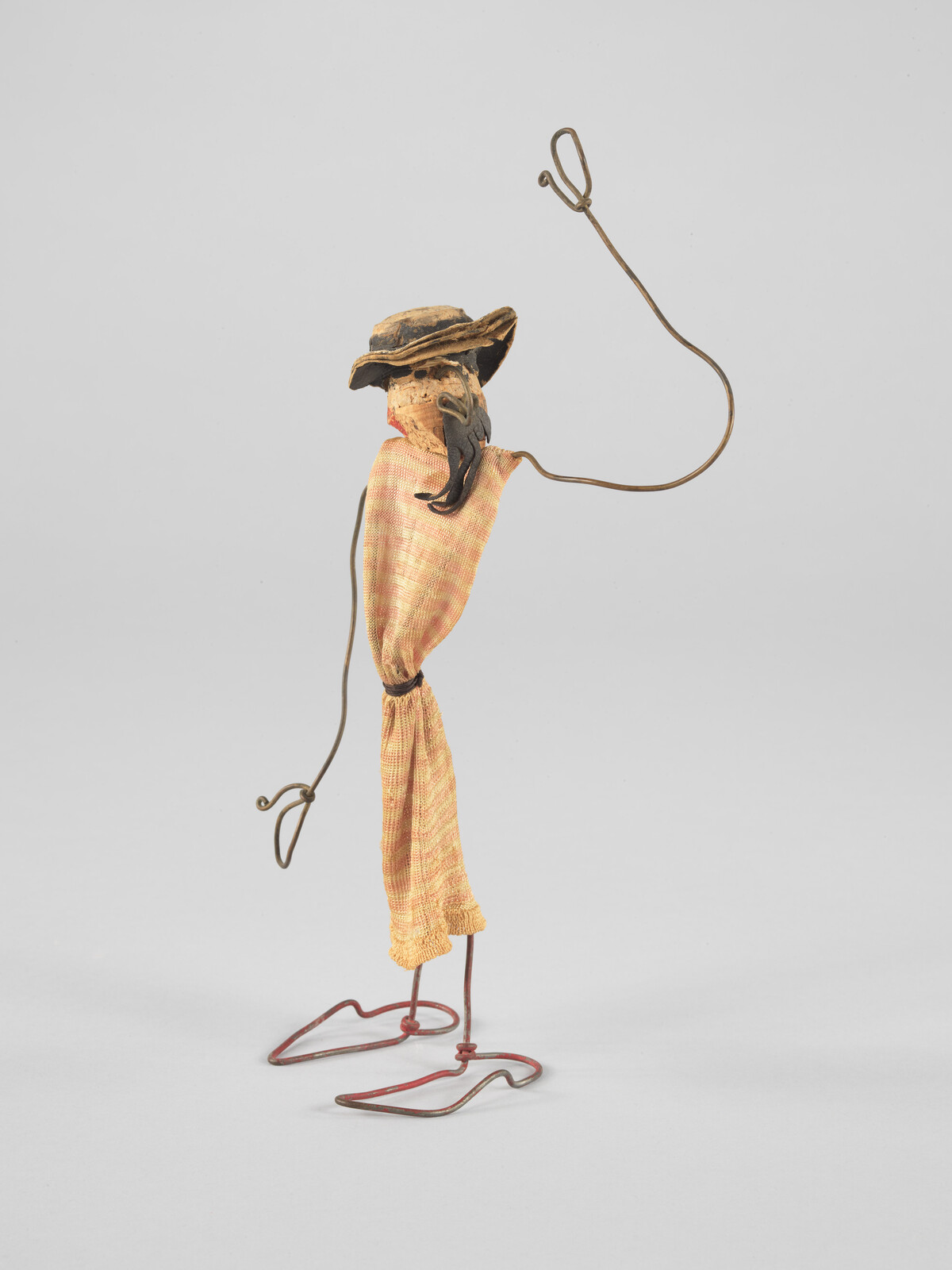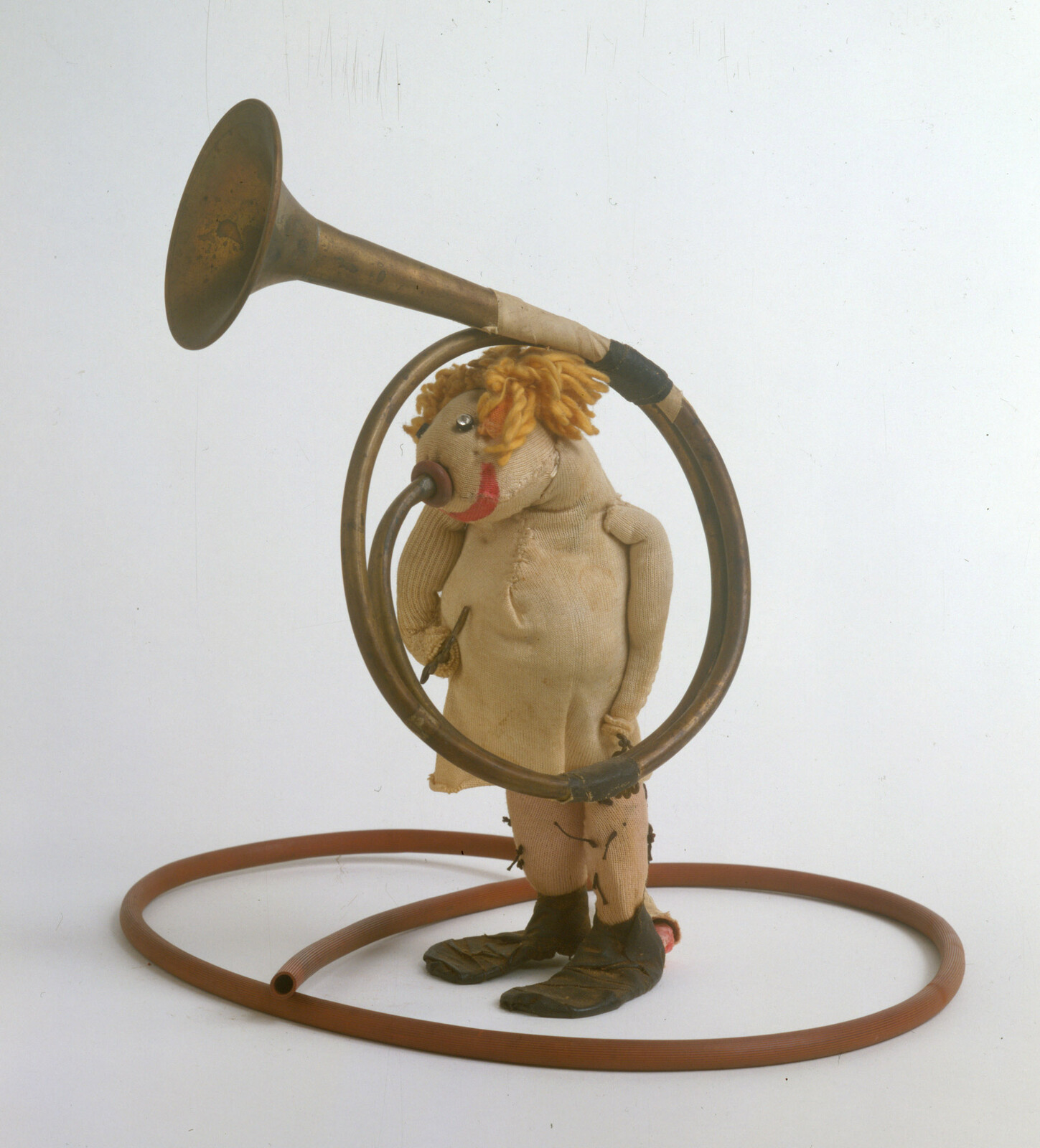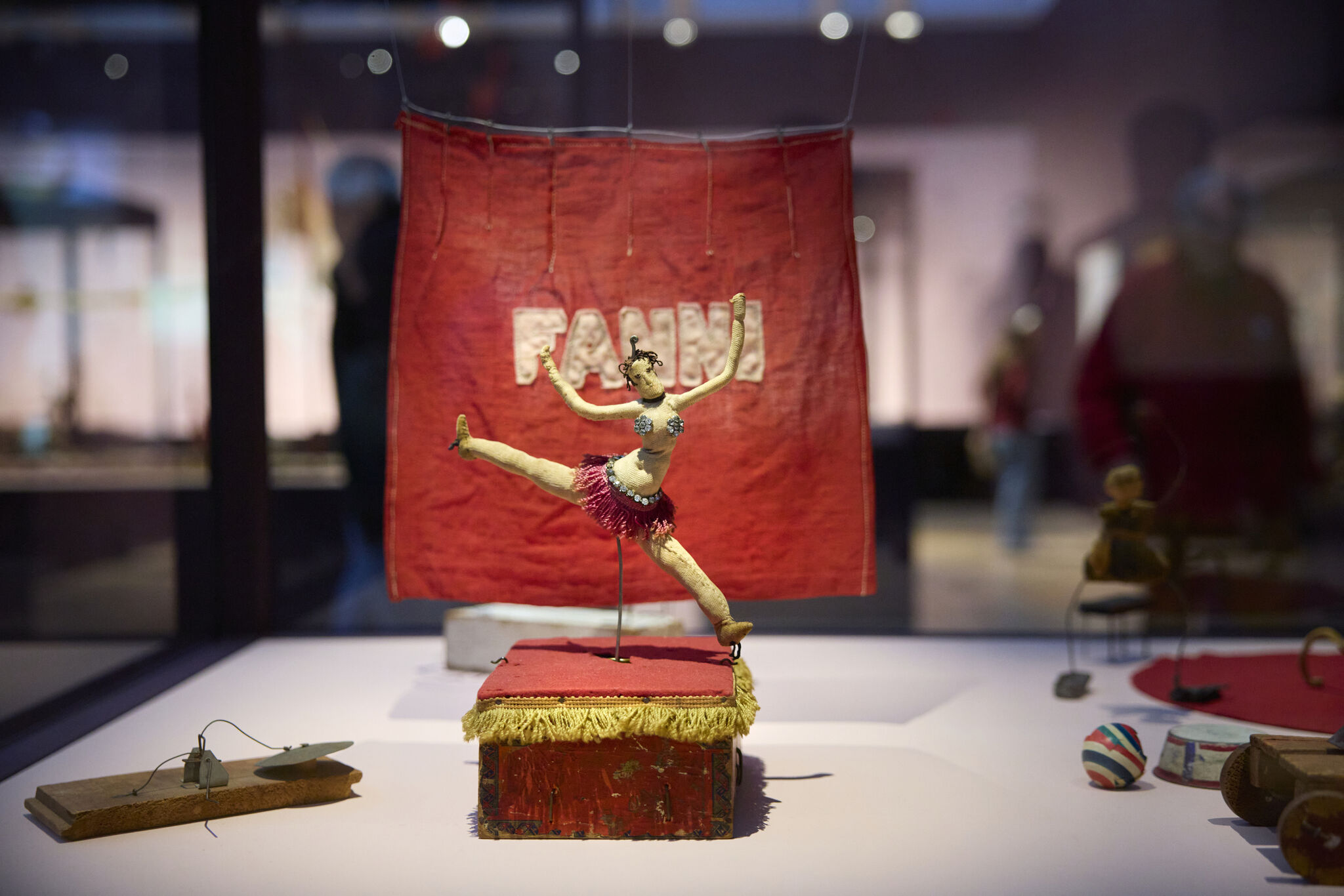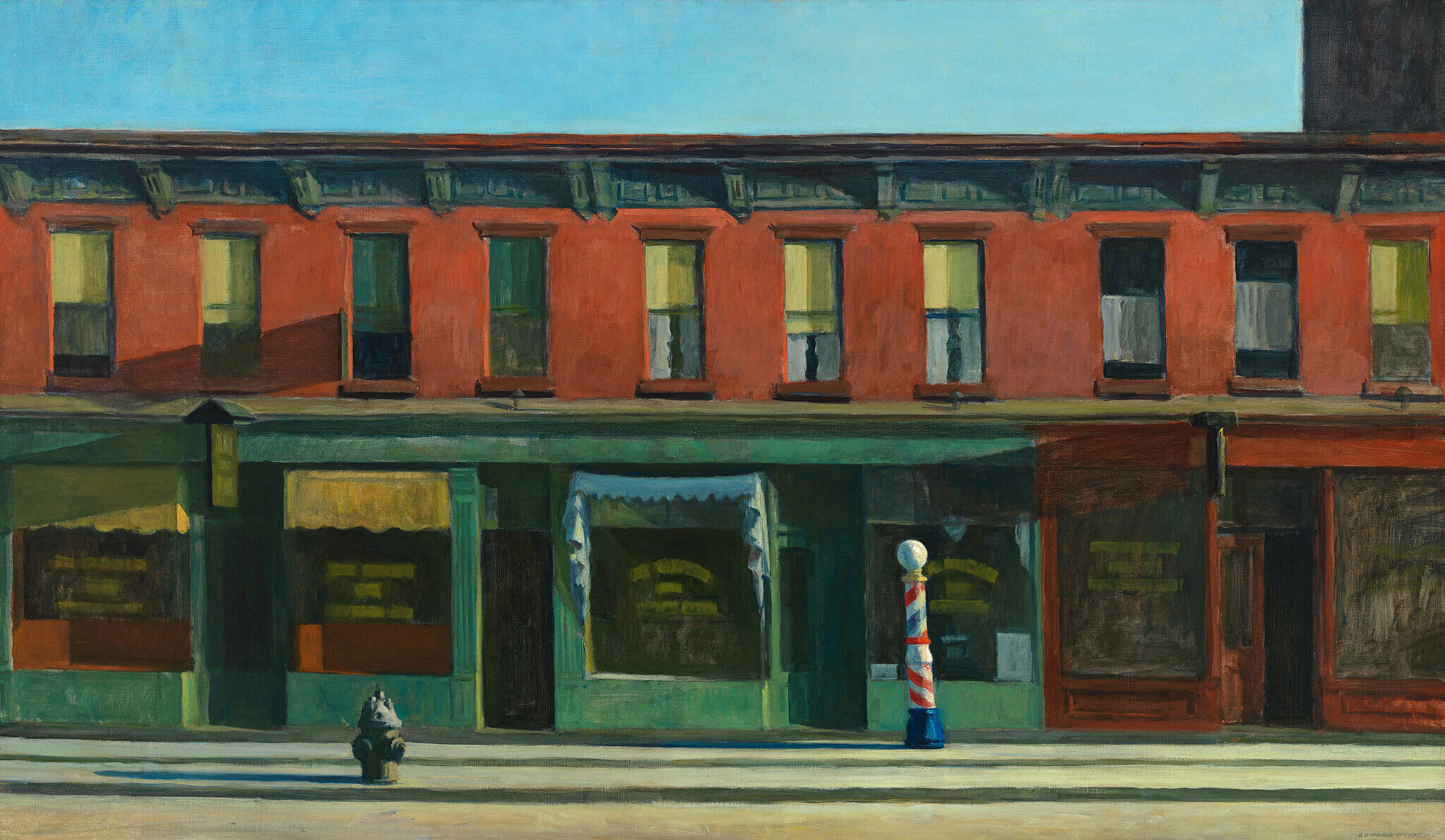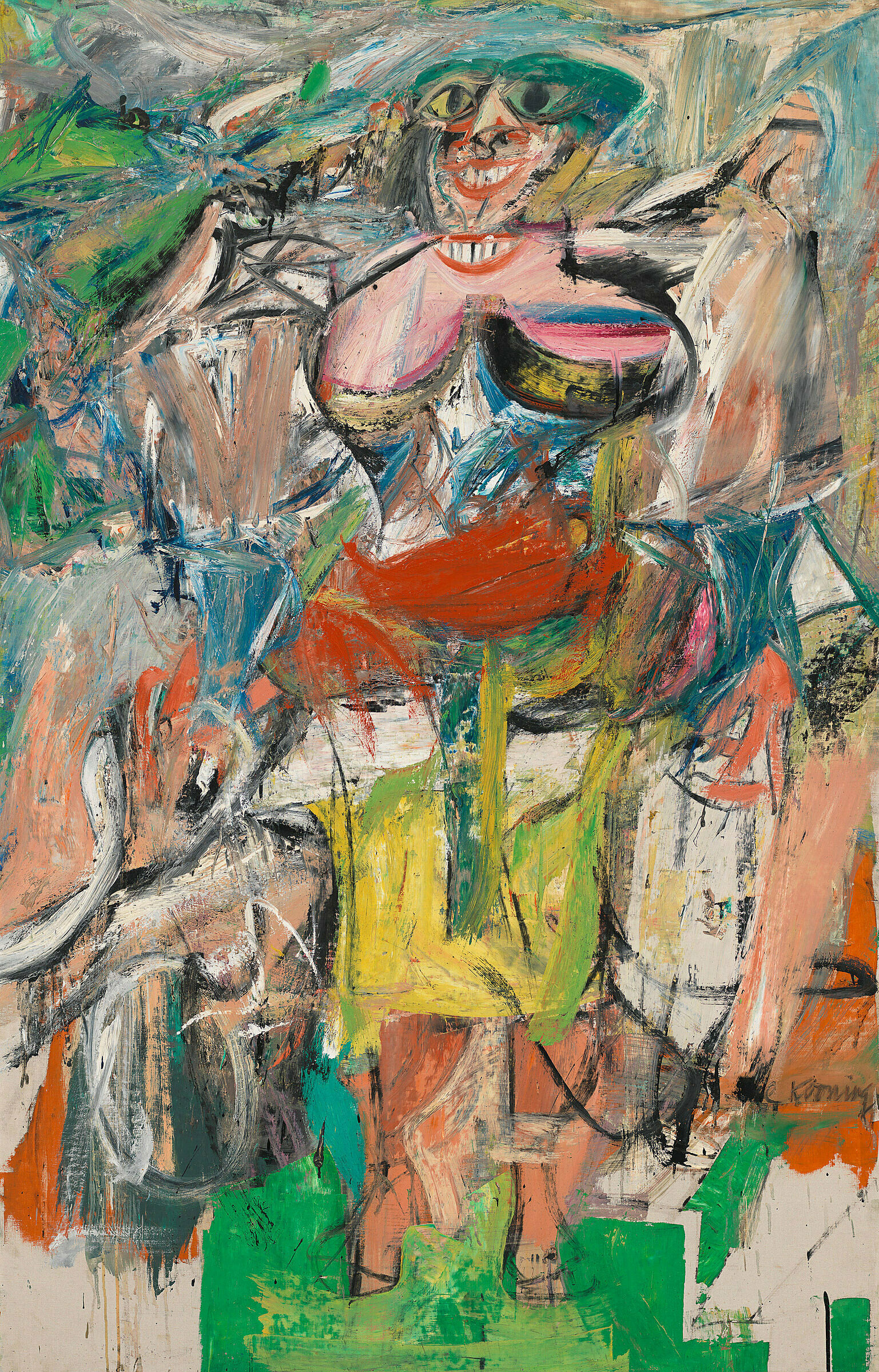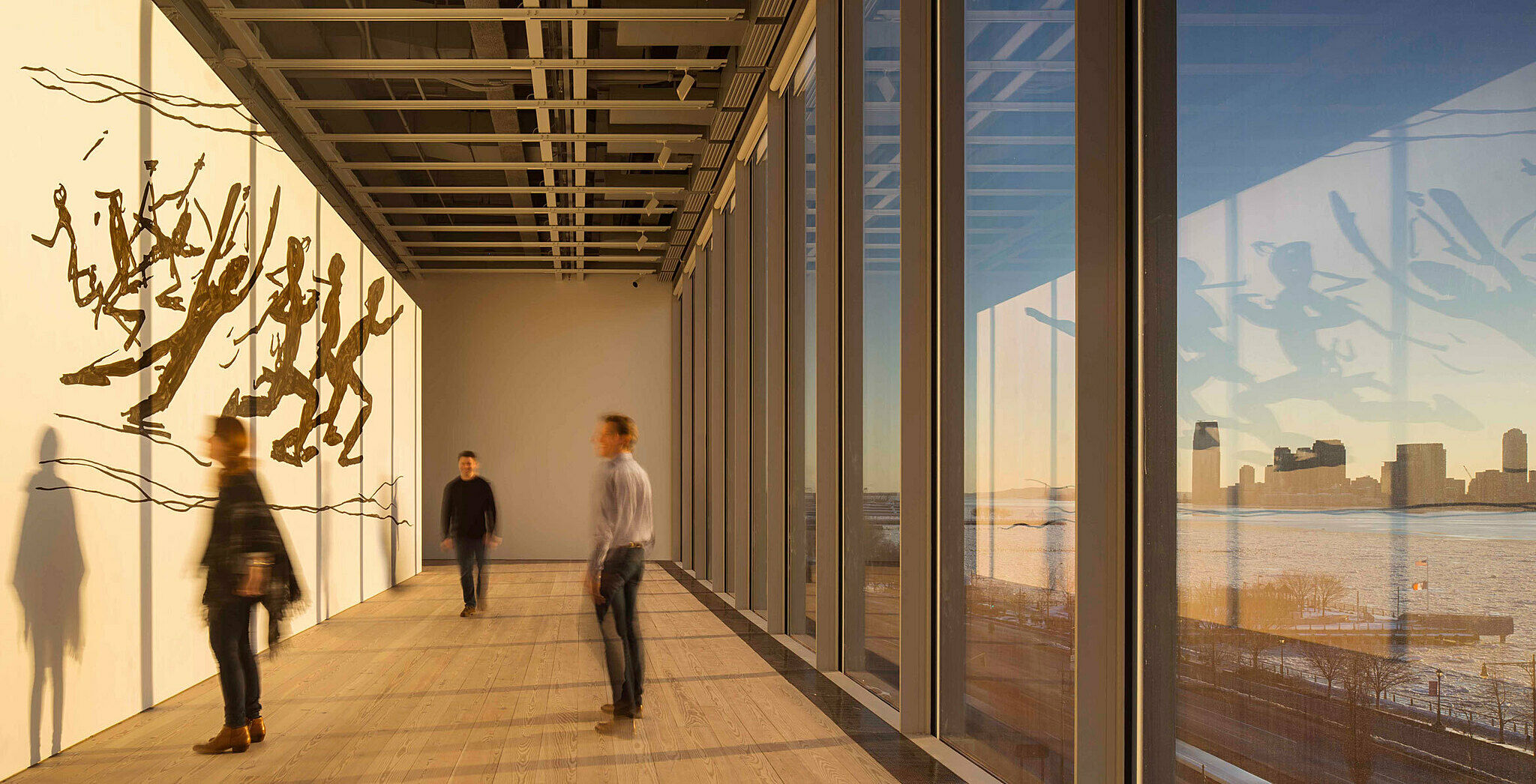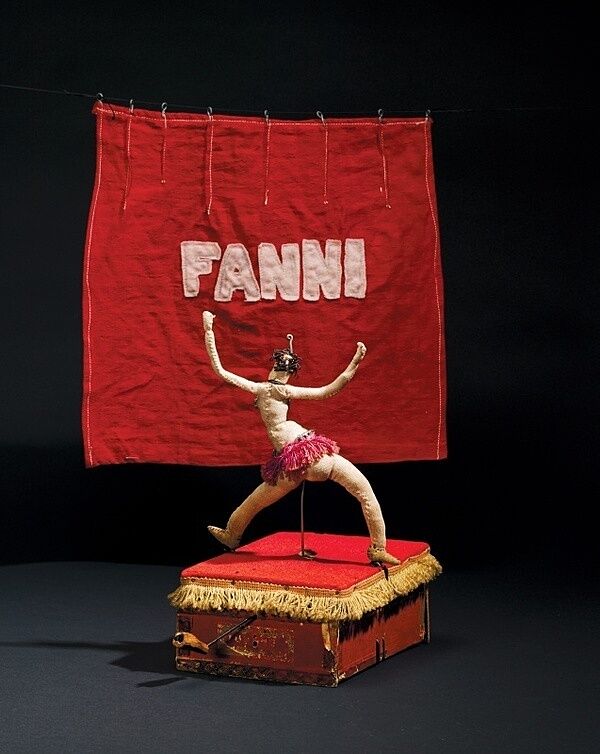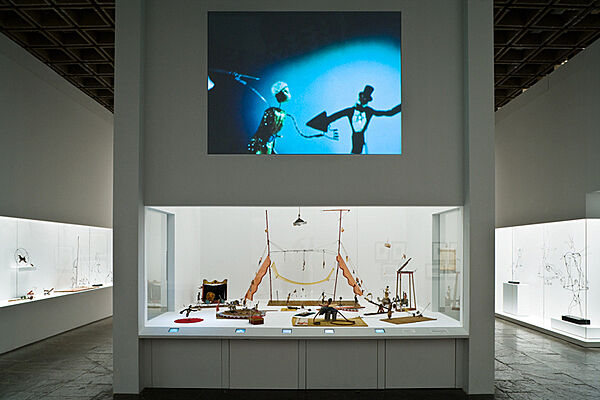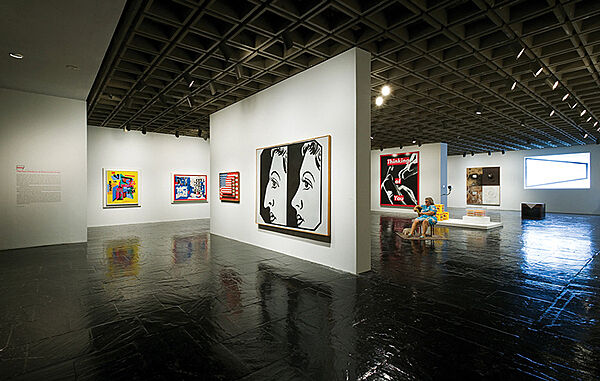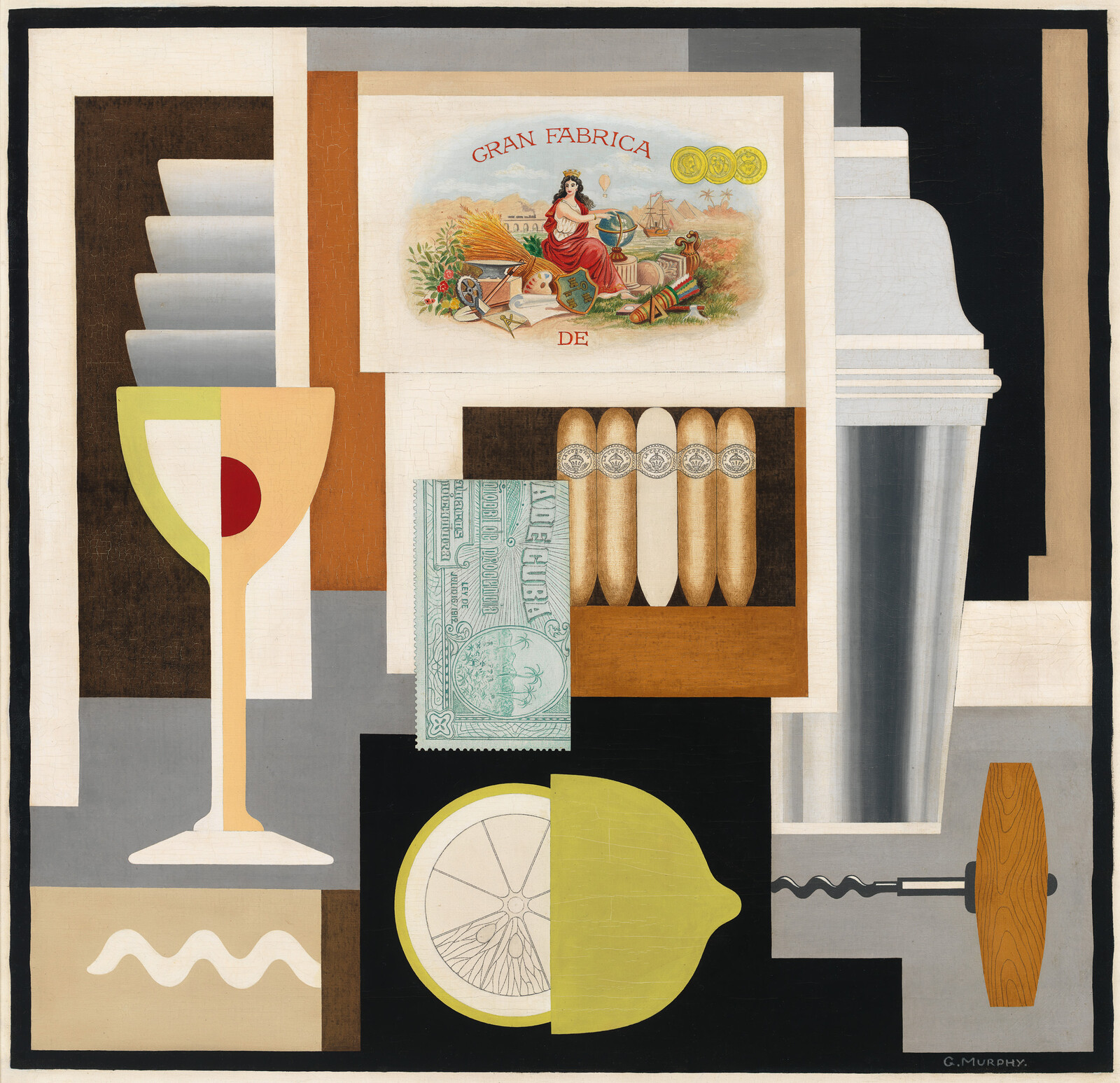Little Clown, The Trumpeteer is one of the “performers” in Calder’s Circus. He is made of flesh-colored cloth, and decorated with yarn hair and rhinestone button eyes. The clown’s feet, comprised of electrical tape, have a rubber tube that goes into the heels and through the inside of his body, with the open end sticking slightly out of his face. During an act with the Bearded Lady, Alexander Calder could attach a balloon to the open end of the tube. By blowing air through the heel end of the tube, the balloon was inflated during the performance. It could burst at any moment and inject an element of surprise into the proceedings.
On view
Floor 8
Date
1926–1931
Classification
Sculpture
Medium
Wire, cloth, paint, yarn, thread, and rhinestone buttons
Dimensions
Overall: 8 3/4 × 3 1/2 × 3 1/4 in. (22.2 × 8.9 × 8.3 cm)
Accession number
83.36.8.1
Credit line
Purchase, with funds from a public fundraising campaign in May 1982. One half of the funds were contributed by the Robert Wood Johnson Jr. Charitable Trust. Additional major donations were given by The Lauder Foundation; the Robert Lehman Foundation, Inc.; the Howard and Jean Lipman Foundation, Inc.; an anonymous donor; The T.M. Evans Foundation, Inc.; MacAndrews & Forbes Group, Incorporated; the De Witt Wallace Fund, Incorporated; Martin and Agneta Gruss; Anne Phillips; Mr. and Mrs. Laurance S. Rockefeller; the Simon Foundation, Inc.; Marylou Whitney; Bankers Trust Company; Mr. and Mrs. Kenneth N. Dayton; Joel and Anne Ehrenkranz; Irvin and Kenneth Feld; Flora Whitney Miller. More than 500 individuals from 26 states and abroad also contributed to the campaign.
Rights and reproductions
© Calder Foundation, New York / Artists Rights Society (ARS), New York
Part of a series:
Calder's Circus
88 works
